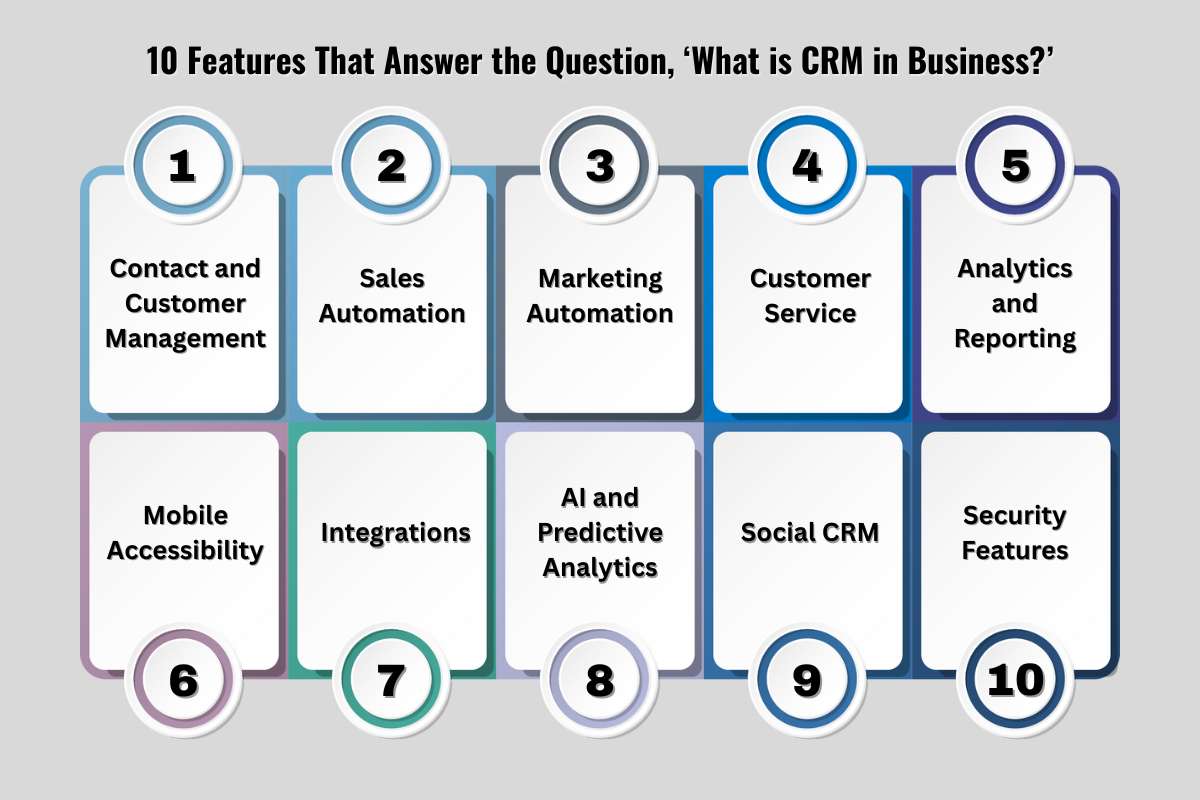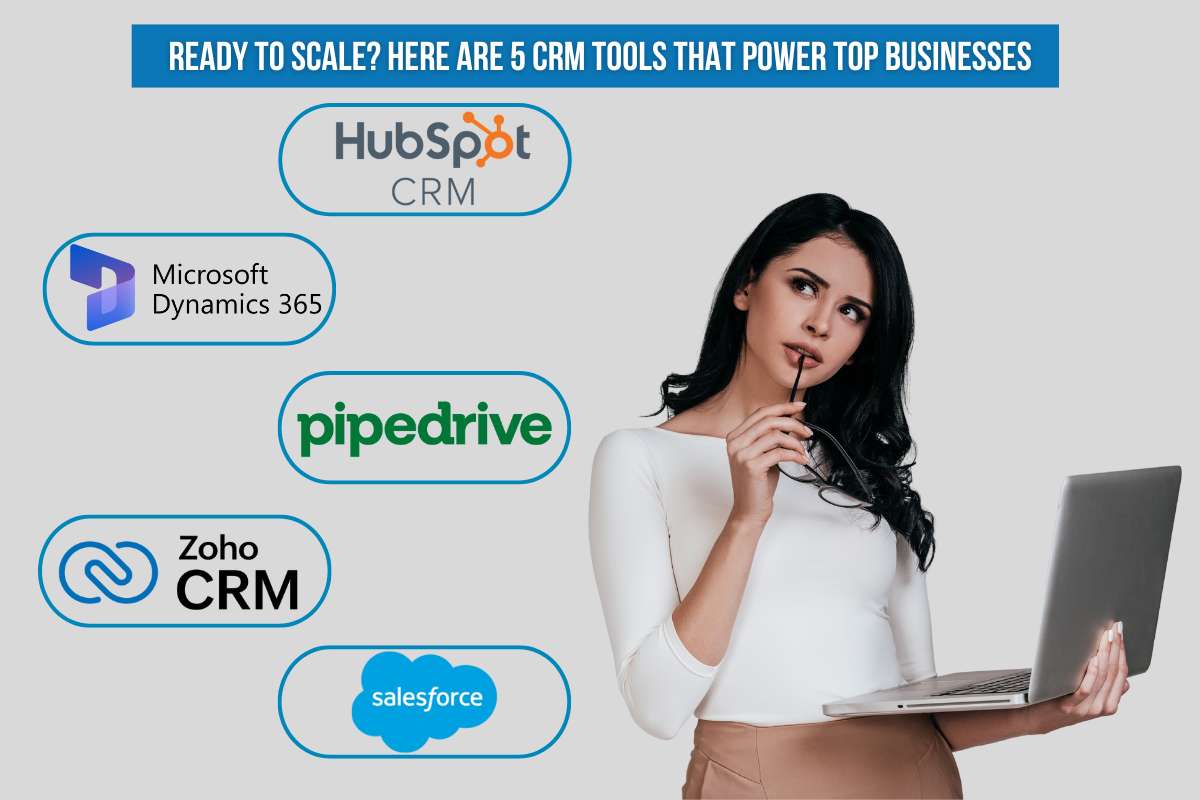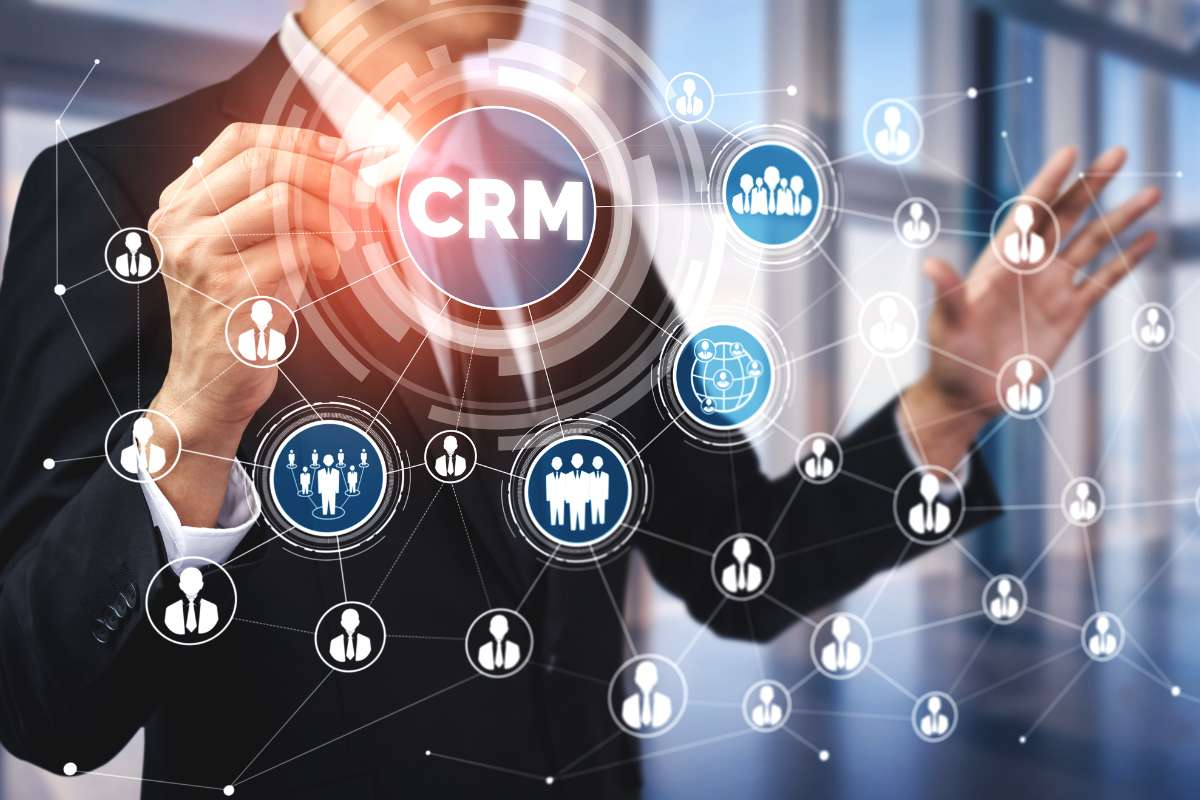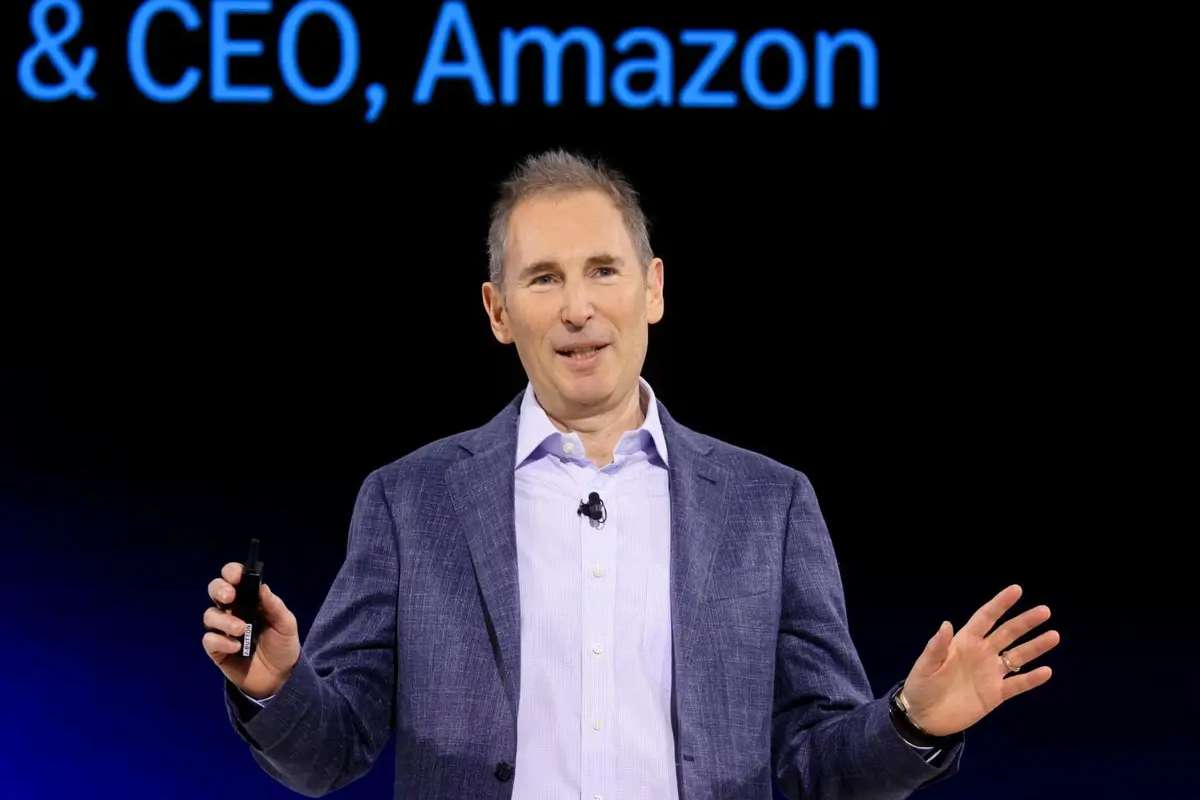Table of Contents
Introduction:
When a business is just getting started, managing customer relationships may seem straightforward enough. You’re likely juggling spreadsheets, jotting down notes, and perhaps using a collection of disparate tools. But, why move beyond the manual methods and makeshift solutions? The short answer is to gain a competitive edge. But as your business grows, this disorganized approach quickly becomes a problem. This is where the concept of CRM becomes not just relevant but essential.
So, what is CRM in business? It is a dedicated Customer Relationship Management system to scale, streamline operations, and improve customer satisfaction.
A robust CRM integrates sales, marketing, and customer service into a single, cohesive platform, providing a 360-degree view of every customer interaction. To truly grasp what CRM is in business and why it’s a non-negotiable tool for a successful business. In today’s blog, we will see how it can turn your business from reactive to proactive. In the end, CRM can make sure you have sustained growth and consumer loyalty.
What is CRM in Business? What is it and what are its Benefits?
“CRM is your GPS to a better route on your Business Development journey.” A quote by Bobby Darnell, a business development consultant in the AEC industry, captures what CRM is perfectly.
Let’s try to understand what CRM is. Think of it as a combination of strategies, processes, and technologies that a business uses to manage and analyze all of its interactions with current and potential customers.
So, to answer the question, what is CRM in business? It is a tool used by businesses to improve their consumer/customer engagement.
A CRM system is essentially a system that collects and stores data of current and potential customers. It collects, organizes, and stores information about every interaction a customer has with your company. You can collect data from the first time they visit your website or call your sales team, as well as their purchase history and every support ticket they submit.
The main goal of a CRM system is to improve your relationship with your customer. As we know, a good customer-business relationship is foundational to a successful business.
What is CRM in Business? A Look at Benefits and Drawbacks
Is CRM actually beneficial for your business, or do we need to think about some of its drawbacks? See, the thing with technology is that it cannot be flawless. There is always some flaw with every technology. But it also has its own share of benefits.
Here is a look at the benefits and drawbacks of CRM systems in businesses:
| Benefits of CRM in Business | Drawbacks of CRM in Business |
|---|---|
| Centralized data enables personalized communication, faster responses, and stronger loyalty. | Significant upfront and ongoing expenses for software, customization, training, and maintenance. |
| Automates sales, manages leads, identifies profitable customers, and enables upselling/cross-selling. | Requires training and adjustment, potentially reducing short-term productivity. |
| Enables targeted, data-driven campaigns with better engagement and ROI. | Centralizing sensitive data raises risks of breaches and compliance challenges. |
| Automates routine tasks, streamlines workflows, and boosts collaboration. | Difficulties in syncing CRM with legacy systems can reduce efficiency. |
| Provides insights via dashboards and reports for informed strategies. | Too much dependence may weaken the personal touch in customer relationships. |
10 Features That Answer the Question, ‘What is CRM in Business?’
Knowing about CRM isn’t enough. You must know the features that come with these systems to make a good choice.

Here are 10 features to have in your CRM system:
1. Contact and Customer Management:
Centralized database to store and access comprehensive customer details, interaction history, and purchase records.
2. Sales Automation:
Automates repetitive tasks like lead assignment, follow-ups, and data entry to boost productivity and streamline the sales pipeline.
3. Marketing Automation:
Tools to segment audiences, launch targeted campaigns, and nurture leads with automated communications.
4. Customer Service:
Manages support requests through ticket systems, live chat, and automated workflows for timely and efficient service.
5. Analytics and Reporting:
Provides real-time dashboards and customizable reports to track KPIs like conversions, ROI, and customer engagement.
6. Mobile Accessibility:
Enables full CRM functionality on mobile devices, ensuring field and remote teams have access to real-time data from anywhere.
7. Integrations:
Connects seamlessly with other business tools like email, calendars, and social media for a unified workflow.
8. AI and Predictive Analytics:
Uses AI to score leads, predict customer behavior, and power chatbots for enhanced personalization and support.
9. Social CRM:
Integrates with social media to monitor brand sentiment and engage with customers on platforms they use.
10. Security Features:
Ensures data integrity and customer trust with robust security measures, including data encryption and compliance with regulations like GDPR.
What are the 4 Types of CRM in Business You Need to Know?
To understand what is CRM in business, you need to understand its types. There are four types of CRM systems. Each of them serves different business needs and purposes.
Here’s what these types are:
| CRM Type | Focus | Uses | Features |
| Operational | Automates daily business tasks | Lead tracking, sales, marketing, service | Sales, marketing & service automation |
| Analytical | Analyzes customer data | Behavior insights, performance, segmentation | Data mining, warehousing, predictive analytics |
| Collaborative | Enhances cross-team communication | Unified customer experience | Interaction mgmt., document sharing, omnichannel |
| Strategic | Builds loyalty & long-term value | Retention, engagement, growth | Segmentation, loyalty programs, relationship tools |
So, now you know what is CRM in business and its types, let’s talk about some of its tools, shall we?
Ready to Scale? Here are 5 CRM Tools That Power Top Businesses

Here are 5 of the most used CRM tools in business that you must know about. There are approximately 700 to 800 CRM tools available worldwide. So why did we choose these tools for CRM in business?
Well, we have made this list based on the tools widely used in businesses all across the world.
- Salesforce: A leading, cloud-based CRM offering a unified, customizable platform for sales, service, and marketing to gain a 360-degree customer view and automate tasks.
- HubSpot CRM: An all-in-one, cloud-based platform famous for its free core CRM and modular “hubs” for marketing, sales, and service operations.
- Zoho CRM: A comprehensive, competitively priced cloud CRM for managing sales and marketing, featuring a wide ecosystem of integrated apps and the AI assistant Zia.
- Microsoft Dynamics 365: A cloud-based business solution combining CRM and ERP, with deep integration into Microsoft products like Office 365 and AI-driven insights.
- Pipedrive: A sales-focused CRM known for its visual, “kanban” style pipeline management and user-friendly automation, ideal for small and medium businesses.
What’s Next for CRM? The Future of Customer Relationships is Already Here
As we now know, what is CRM in business, let’s talk about what the future holds for this technology.

According to Grandview Research, the global customer relationship management market size was valued at USD 73.40 billion in 2024. The CRM market is projected to reach USD 163.16 billion by 2030. This means it will grow at a CAGR of 14.6% from 2025 to 2030.
According to Mordor Intelligence, the customer relationship management market size is estimated at USD 81.20 billion in 2025. The AI in CRM market alone is projected to exceed $11 billion by 2025.
The increasing emphasis on digital transformation across industries is a fundamental growth driver for the market. As businesses prioritize data-driven customer engagement and personalized marketing, CRM is becoming more and more important.
Another driving force is the rising demand for enhanced customer experience and omnichannel communication capabilities. This is pushing companies to adopt advanced CRM solutions that unify sales, marketing, and service workflows.
Conclusion:
Now that we understand what is CRM in business, it is far more than just a software tool; it’s a fundamental strategy for modern business growth. We’ve seen how a dedicated CRM system moves a business beyond disorganized spreadsheets. It enables sales, marketing, and service teams to work in harmony. It provides a personalized experience that drives loyalty and efficiency.
The choice to adopt a CRM is a strategic investment in your company’s future. As the market continues its rapid growth, the businesses that truly know what is CRM in business and integrate it effectively will be the ones with sustained success and long-term customer satisfaction.
FAQs
1. Is a CRM system the same as a contact management system?
No, a contact management system is a basic tool for storing contact information. A CRM system is far more advanced; it not only stores contacts but also tracks every customer interaction, manages sales pipelines, and provides data for business strategy.
2. What are some signs that my business needs a CRM system?
You likely need a CRM if your customer data is scattered, you’re losing track of leads, your sales process is disorganized, or you can’t get a clear, unified view of your customers.
3. What is CRM in business used for?
A CRM is used to manage and analyze all customer interactions. It helps a business centralize customer data, streamline sales, and automate marketing. It improves customer service to drive growth and profitability.


















